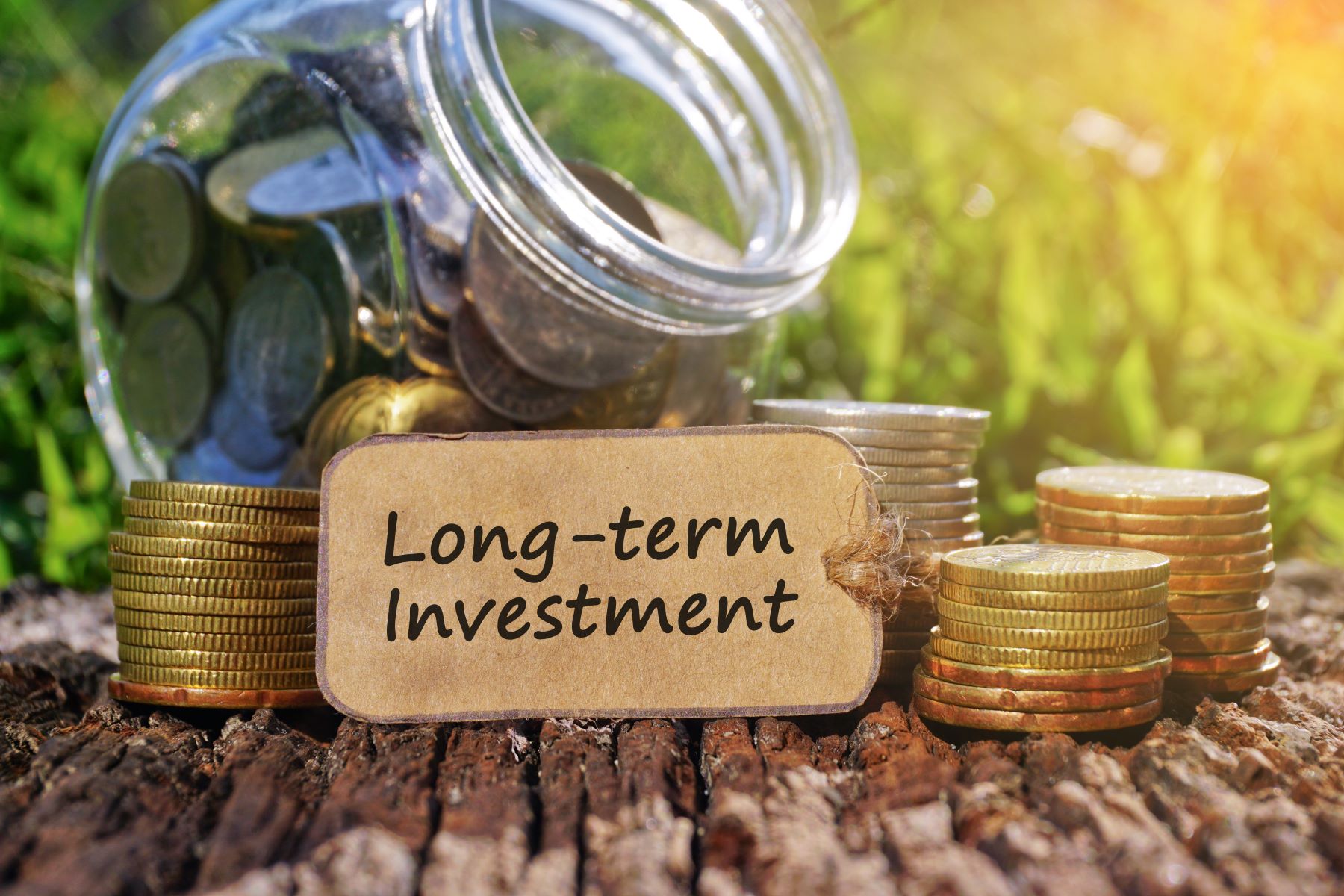Home>Finance>What You Should Know About Long Term Investments


Finance
What You Should Know About Long Term Investments
Modified: December 30, 2023
Discover the best long term investments you can make and long term investing strategies you can follow to achieve your goals and build wealth over time.
(Many of the links in this article redirect to a specific reviewed product. Your purchase of these products through affiliate links helps to generate commission for LiveWell, at no extra cost. Learn more)
Long term investments are the company’s assets that include cash, stocks, bonds, and real estate. If the company intends, these investments are held for more than a year. They are also used to generate income outside the company’s normal operations.
Read on to know about the best long term investments you can make and investing strategies you can use.
Long Term Investments vs. Short Term Investments
Long term investments will not be sold for years or may never be sold in some cases. It usually offers a higher probability of maximizing return over a ten-year period. Stocks and index funds are examples of long term investment vehicles. If you invest long term, you can opt for an aggressive mutual fund to get the highest rate of return. This is because you have a longer time horizon.
In comparison, short term investments will most likely be sold after holding them for three years or less. Money market funds, certificates of deposit, and short-term bonds are examples of short term investments. It is often associated with day trading. But before you get into this type of investing, make sure you understand the basics of the stock market and do plenty of research.
Best Long Term Investments
Growth Stocks
Companies with growth stocks promise high investment returns and long-term growth. Often, they do not pay dividends to stockholders and reinvest their profits in growth. These stocks have been some of the best performers, but also among the riskier segments of the market. This is because investors will pay a lot for the stock relative to the company’s earnings.

Photo from Max Pixels
When a recession arrives, growth stocks can plummet and lose a lot of their value quickly. That is why you will have to analyze the company carefully if you are going to buy individual growth stocks. Due to their volatility, you will also need to commit to holding the stocks for at least three to five years or have a high-risk tolerance.
Dividend Stocks
High dividend stocks issued by companies often yield higher pay than fixed-income investments. In contrast to growth-oriented companies, these stocks return a substantial amount of net profits to shareholders. Because they produce a regular cash payout, dividend stocks are popular among older investors.
A dividend-paying company is also generally considered safer because it is more mature and established. Its stocks tend to be less volatile than growth stocks producing a regular income over time. But if the stock market goes through a recession, they may also have the tendency to rise and fall significantly. Also, if the company does not earn enough to pay its dividend, it will cut the payout causing the stock to plummet.
Mutual Funds
Mutual funds fall under actively managed funds. Its purpose is to outperform the underlying market index and not to simply match it. It includes stocks, bonds, money market instruments, and other assets. Fund managers are the ones who operate mutual funds.
They may use various criteria to determine the top performers depending on the fund’s purpose. Some may look for value, while other funds may favor revenue or earnings growth. This gives mutual funds managers varying degrees of success at active management.
Exchange-Traded Funds (ETFs)
Exchange-Traded Funds or ETFs are similar to mutual funds which are baskets of securities traded on an open exchange. But they are passively managed, compared to mutual funds. They can be bought or sold at any time just like a regular stock. ETFs also have lower costs such as taxation and management fees.

Photo by Marco Verch from Flickr
These funds can also invest in mid-cap and small-cap stocks based on indexes that represent those markets. Unlike mutual funds, ETF merely seeks to match the performance of the underlying index. It also requires less investment capital.
Real Estate
Real estate is frequently mentioned as the best long-term investment. It is an alternative to stocks because it produces similar returns to stocks. Often, those returns come from holding an asset for a long time and over just a few years in rare cases.
While real estate is considered a passive investment, you still need to do active management if you are renting the property. You will also need to keep paying the mortgage and other maintenance costs even if you do not have a tenant for the property.

Photo by Jesse Roberts on Unsplash
Despite the high risks, real estate also has high rewards. You can earn many times your investment if you have selected a good property, managed it well, and held the asset over time. And once you pay off the mortgage, you can enjoy greater cash flow and stability from your property. That is why real estate is an attractive option for older investors.
Robo-Advisors
If you want to invest and leave it to an experienced professional, Robo-advisors will handle the investing for you. It is an ideal option, especially for beginner investors. You simply deposit money into your account, and the Robo-advisor will create and manage your portfolio. It automatically invests based on your goals, risk tolerance, and time horizon.
Aside from that, it also selects funds such as low-cost ETFs, builds you a portfolio, reinvests dividends, and rebalances them as necessary. There is a management fee charged by the Robo-advisor which is around 0.25 percent annually. While investment funds charge by how much you have invested with them and typically cost around 0.06 percent to 0.15 percent.

Photo from wealthfront.com
There are a lot of investment apps you can choose from (e.g. Betterment, Wealthfront). The risks involved will depend a lot on your investments. Overall, Robo-advisors are helpful in building a diversified portfolio to achieve returns and meet your long-term needs.
IRAs
IRAs are tax-sheltered retirement plans, and not actual investments. But when you hold investments in these plans, you get important tax benefits which adds an important dimension to any investment strategy. The plans include a traditional IRA, Roth IRA, 401k, 403b, TSP, Solo 401k, SEP IRA, or SIMPLE IRA.

Photo by Marco Verch from Flickr
Also, they hold benefits such as the tax deductibility of your contributions and tax deferral of investment earnings. The latter means that your investments can earn income and capital appreciation without immediate tax consequences year after year. Only when funds are withdrawn from the plan, they become taxable.
Strategies for Long Term Investing
1. Start Investing Early
Investors who start investing their money early gives it more potential to grow. Aside from sticking to a long term investing strategy, practicing patience will also give them the best returns and financial success.

Photo by 401(K) 2012 from Flickr
2. Take Advantage Of Retirement Plans
Take advantage of your employer’s matching contribution inside the company’s plan. This may be 401k, 403b, or other retirement plans. And also make sure you always contribute at least enough to it.
3. Set Up Cash-flow Management
During your working years, automatically invest your money each month at a minimum. Sticking with a sound cash-flow plan will help investors achieve their goals.

Photo from Max Pixels
4. Diversify
One of the smart ways to invest is diversifying across asset classes. Having a diversified portfolio will give investors the potential for growth.
5. Invest More, Spend Less
It is important to practice discipline when it comes to discretionary income, the same goes for investing. You need to evaluate your monthly expenses and see which are necessary and which you can do without.

Photo from Max Pixels
6. Balance Your Funds
If you balance your investments and cash reserves, you will have available funds when you need them. Usually, investing in stocks is one of the best options.
With these strategies and the help of the right investments, you will have the potential to achieve growth and higher returns. This makes long term investments one of the best ways for investors to build wealth over time.













